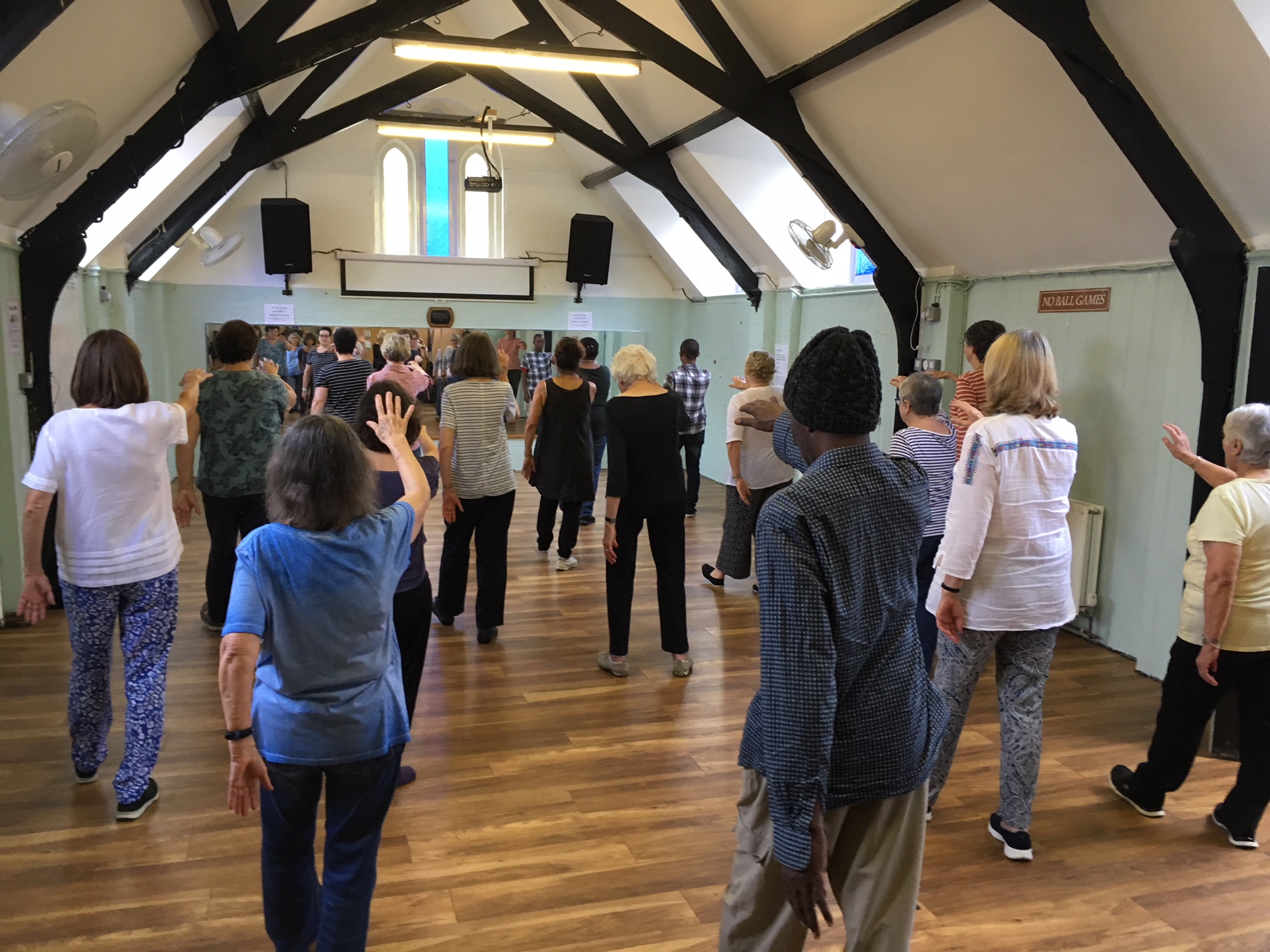We are back. After 16 months of teaching online and 125 programmes, we are now making our way back to Face-to-Face teaching. Please see below for the list of classes.
As a result of teaching and broadcasting 125 online sessions (March 2020 - July 2021), a large archive of video materials have been processed, edited and collated as a: “Choose and Pick Cluster” available to fee paying students for their solo practice and catch up viewing.
South London T’ai Chi provides sessions for mature people, GP Referred Patients, Balance Improvement and local community. Private tuition on Taichi and Dynamic Balance Improvement provided by appointment only. See below for updated list of my public teachings.

While I fully acknowledge the martial aspect of the T’ai Chi art, my approach to teaching is essentially a non-combative soft T’ai Chi, focussing on relaxation, dynamic balance improvement, fitness and health.
See: Interactive Guide for the Best Strength Exercises published by Age UK 2016.
Lambeth Council for patients referred by GPs 2008 - 2016
South London T’ai Chi ran a course for Lambeth Council for patients referred by GPs. This initiative was part of Lambeth Council’s Healthy Lifestyles GP Referral Scheme.
Taichi at Duchesne House, elderly sisters and their associates 2008 - 2018.
For more information see “Work History” and “Testimonial” under ABOUT US



